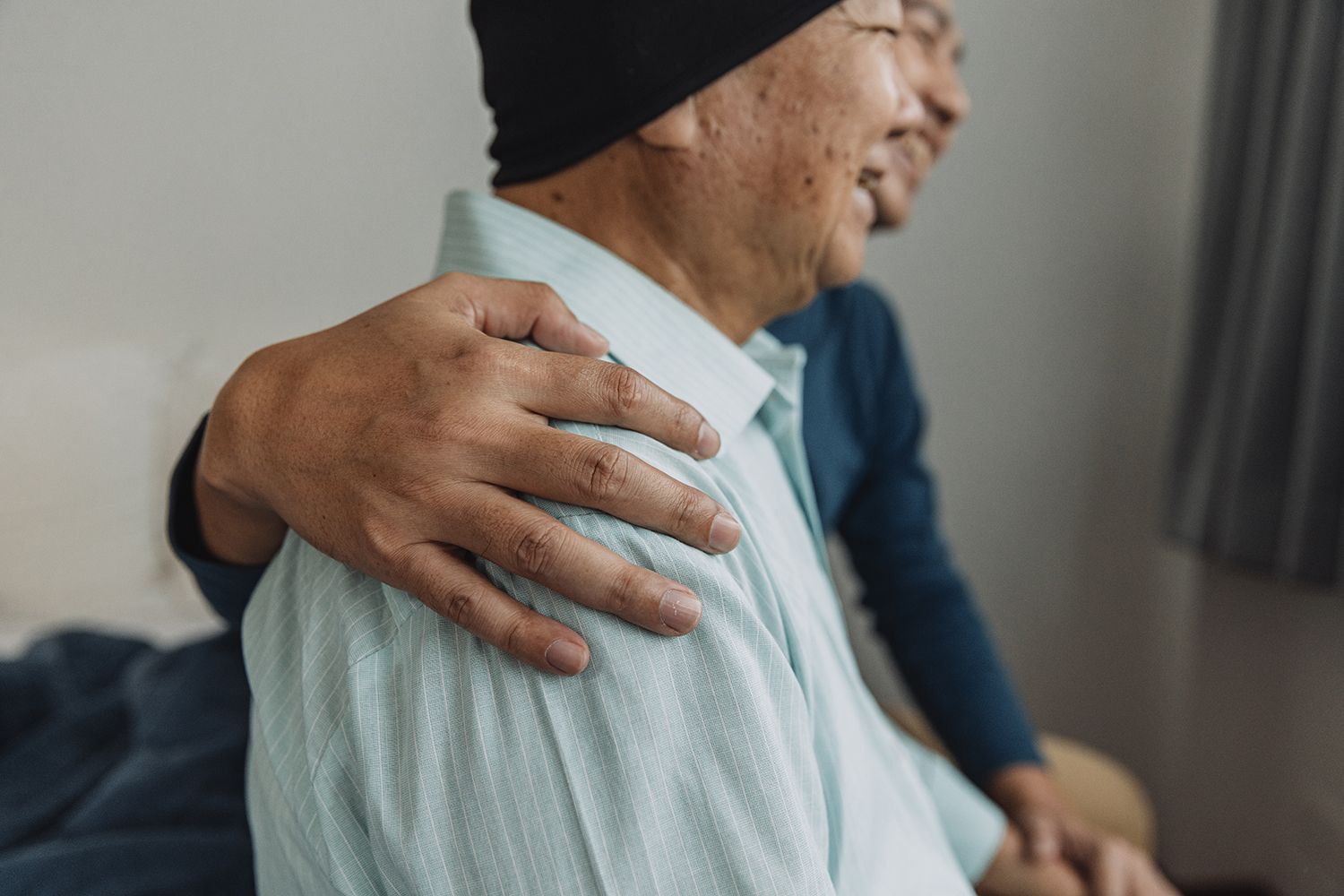According to the American Cancer Society, one in eight American men will be diagnosed with prostate cancer in their lifetime. There will be approximately 314,000 new cases of prostate cancer this year alone. Often called a “silent killer,” prostate cancer typically shows no symptoms early on, allowing it to progress without the patient’s awareness. In its later stages, it can become more aggressive, and the course of treatment requires support from loved ones.
That’s where caregiving comes in, as thousands of people in the United States know from personal experience. According to the AARP, approximately one in five adults are caregivers, a responsibility that, while deeply meaningful, can also be overwhelming. It can feel all-consuming, particularly when family members or friends are thrust into the role without preparation or training, relying just on their love for the patient to help power them through the demanding role.
“You have to keep reminding yourself that you’re doing a big thing here. You’re taking care of a whole human being, maybe 24/7, and you’re a human being yourself,” says Nancy Keller, LPN, a Connecticut-based hospice nurse. “You need things along the way, and you can’t give everything to the patient.”
The most common issue she sees is caretaker burnout—when the physical and emotional stress of caring for someone takes a toll on the caregiver’s well-being. “They’re doing everything for this person and oftentimes they either don’t have consistent support from [others], or help comes in spurts,” says Keller.
From managing appointments and medications to handling daily tasks, and easing emotional challenges, it’s a heavy load. But it ultimately boils down to this: If you don’t take care of yourself, you can’t effectively care for someone else. Ahead, we’ve gathered practical tips and thoughtful guidance to help you navigate the complexities of caregiving for a loved one with prostate cancer.
Learn to let go
We sometimes think that we can (and must) “do it all,” but that’s not the case. Yes, caregivers are superheroes, but it is okay to ask for help. If the person in your life suffering from prostate cancer is at a stage where they need continuous care, reach out to family, friends, or neighbors who can come and sit with them while you run an errand.
And once help arrives, embrace it. Sometimes even though we know we need the help, it’s hard to accept it when it comes for fear that we’re shirking our responsibilities.
Keller says she sees that often in her job. “In hospice we have aides that are scheduled to come in at certain times and so we say to the caregiver, ‘When the aide comes to give your dad or husband a bath, let her do her thing. She’s trained to do that, so let her, and then you go and take a walk down the street for a bit.’”
Schedule in self-care
The physical part of caring for someone may be second nature, but the time management component (and emotional aspect, but more on that later) often gets overlooked, explains Keller. That’s why it’s crucial to schedule your own breaks with the same importance you’d give a doctor’s appointment.
Is physical therapy at 4:00? Use that time to step out for a coffee. Have a quiet window in the morning? Try to fit in a workout a few times a week. Put these things in the calendar and treat them as meetings you can’t miss. You can’t just hope for downtime—you must plan for it.
If your loved one can’t be left alone, consider looking into a respite care volunteer service which provides temporary relief. Another idea to put you at ease? Even small tools like baby monitors or home cameras can bring peace of mind, allowing you to check in without being in the room.
Adjust your routine to theirs
When you’re caring for someone, their schedule—whether it’s doctor appointments, chemo treatments, or medication routines—often takes center stage. But by thoughtfully aligning parts of your day with theirs, you can create a sense of balance. For example, if you’re driving them to an appointment, plan to knock out an errand on the way home. Do they eat dinner at 6:00 every evening? Sit down and eat with them. It’s easy to skip meals when you’re focused on someone else, but sharing mealtime gives you a chance to refuel and reconnect. Food has a way of grounding us and bringing people together.
Phone a friend
Prioritizing your emotional well-being is just as important as managing the physical demands of caregiving. Maintaining relationships outside of the one you have with the person you’re caring for can be a crucial lifeline.
“It means staying connected—to a family member, a close friend, a neighbor, or maybe a pastor at your church,” says Keller. “You need a safe space to vent and be heard.” That could mean a weekly phone call, a coffee date, or dinner with someone in your support circle.
“I always say—get away from the caregiving situation whenever you can, without compromising the patient’s safety, and do something just for you,” Keller advises. Because as it bears repeating often: If you don’t take care of yourself, you won’t be able to truly care for someone else.
Get adequate sleep
Of course that may be easier said than done. But without prioritizing your health and recharging with sufficient shut-eye, your battery will eventually be depleted.
“One of the most important things for the person doing the care is to get enough sleep,” says Keller. “That can be a hard thing because not only are you doing a lot, but you’re thinking a lot which can be distracting and keep you up at night.” To ease yourself to sleep, find a nightly ritual that works for you—listen to a meditation app, have a cup of herbal tea, take a warm bath, read a chapter or two of a good book, or all the above. Whatever helps you unwind, make it a habit.
Don’t overlook their emotional state
When you’re caught up in the daily grind of managing your loved one’s physical needs, you may unintentionally overlook their emotional needs — which can end up being tough for both of you.
“The emotional connection someone needs during this time is ultimately more important than the physical,” says Keller, especially with a diagnosis like prostate cancer, which may not present itself with physical pain in its early stages. “There’s not much you can do physically for prostate cancer, but emotionally—you can do a lot.”
Instead of dwelling on the weight of the diagnosis, focus on the present. Life is still happening. Encourage visits from friends and family, find ways to add moments of joy into the day, and try to keep a sense of normalcy wherever you can. Everyone will be better for it.
Seek out organizations for help
A social worker can be an invaluable ally, connecting you with a range of support services—from educational resources and respite care to guidance on local support groups. Start by speaking with your loved one’s oncologist—they can often point you in the right direction.
If your loved one is a veteran, the VA’s National Oncology Program (NOP) offers a variety of benefits that can help both you and him, from prescription management to transportation. And don’t overlook organizations like AARP and the American Cancer Society—they offer a wealth of tools, information, and resources to help lighten your load.
Read the full article here

















